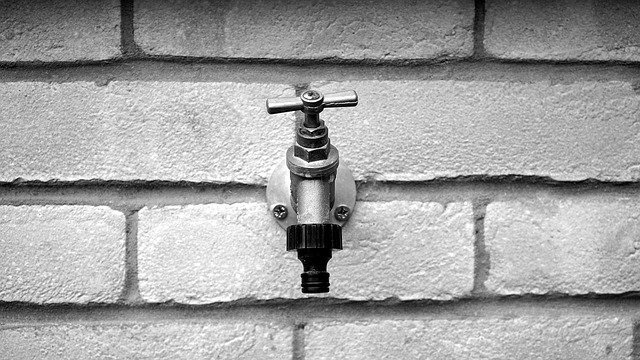
There are lots of things that can go wrong with plumbing. Some things might be an easy fix for you, others can be more complicated. It does not matter what your circumstances are, when you’re educated properly on plumbing you can fix most problems within a reasonable time period.
Pump your septic tank every five years to keep it working well. This will stop any buildup in your septic tank and prevent any horrible issues. While you may find it costly to get your septic tank cleaned out, the cost is much higher to have sewage and backups cleaned up and your septic tank repaired or replaced.
If a pipe freezes, open a tap on the line to allow the thawing ice to drain. This will help relieve pressure in pipes to prevent them from bursting, and can keep them from bursting.
Make sure the job gets done by not paying your plumber until you are satisfied, and the work is completed. Some plumbers may require a deposit, but don’t fork over all the dough until the job is completed to spec. You will feel better paying the bill when you are completely satisfied with the job.
Knowing all your different tools and how to operate them is essential to any aspiring plumber. Before attempting any repairs, plan ahead, a mistake could make repairs even more costly.
You need to know your plumbing tools as well as how they are used so your plumbing efforts are always positive. Read all of the equipment’s manuals and read up as much as you can on plumbing projects. Make sure that, before you jump in and start taking things apart, you plan your plumbing repair first.
If your toilet is clogged, and the plunger is not working, and your water level inside of the toilet appears low, you may be able to resolve the problem by pouring a bucket of warm water into the toilet from waist level or higher. Repeat this procedure if necessary as the water goes back to a lower level.
You can resolve most toilet clogs yourself. Try a plunger first. If plunging the toilet doesn’t seem to clear up a clog, check the toilet’s water level. If it’s too low, try filling a bucket with warm water. Open the toilet’s tank, and pour the water in. If the water goes down to a lower level again, then you should repeat the procedure.
Garbage Disposal
Don’t put fat, grease and other oils into the drain. Whenever they cool, they tend to harden and make clogs inside your drains. This is primarily true if you are someone who has a garbage disposal; the fats will make the blades go slower and less freely. You should dispose of all oils outside of the sink.
Never use your bare hands in your garbage disposal. Even an un-powered garbage disposal is turned off they can be dangerous.You can search online to find the diagram for the disposal that you have.
Keep the drains in your bathtub working properly by pouring a cup’s worth of baking soda and than a cup’s worth of vinegar directly down your drain every month. Cover the drain up with a plug or old rag, as there will be a chemical reaction in the pipes. After a few minutes,just flush the drain out with water that has reached a boiling point. This procedure will clear the hair and soap scum out of your pipes.
Avoid dumping oil, grease, and other oils into your drain. This is especially damaging to garbage disposal; the fats will make the blades turn more slowly and less efficiently. Make sure you dispose of all oils in other places other than the sink.
If you have a shower head that needs replacing, be sure to get one that is good quality. Avoid the temptation to purchase an inferior quality head for your shower. These types of fixtures are prone to breakage and are much less sturdy.
By having a regular cleaning routine, lemon rinds, and even cherry pits, you can keep your disposal running smoothly and smelling as fresh as the day it was installed.
Choose enzyme based cleaners if your pipes get clogged. Enzyme cleaners contain bacteria that digest through solid sludge, making it weak enough to be flushed out. The most highly recommended pipe cleaners are enzyme cleaners.
Chemical Reaction
A sink with poor water pressure can often be corrected by cleaning the built-up sediment out of the aerator. Get rid of the aerator, remove it, and clean it with a brush dipped in some vinegar. Rinse it and put it back on the faucet. That should help raise water pressure, as any aerator obstacles will be gone.
Pour equal parts baking soda and vinegar down your bathtub drain every month. Plug up the opening or cover it with a cloth while the chemical reaction takes place. Wait until the chemical reaction runs its course, then flush with boiling water. This method should clear your pipes by clearing out hair and soap scum.
If you need to remove a clean out plug, and you are not having much luck, there are two methods used to help you do this. You can use a hammer and a chisel to attempt to make the fitting looser. Your only other choice is chiseling directly through the actual plug itself.
Like this article said, there are a lot of things that can happen to your plumbing. These issues can be small, or they can be big. Use these tips and you will discover that it is not necessary to stress over plumbing problems. There is always a solution.
Be certain that your toilet does not have a leak. To check, squeeze a few food coloring drops in the toilet tank. Keep your eyes on the toilet bowl, and if the colored water seeps into the bowl, you know that there is an issue with your toilet that you will need to take care of soon.
